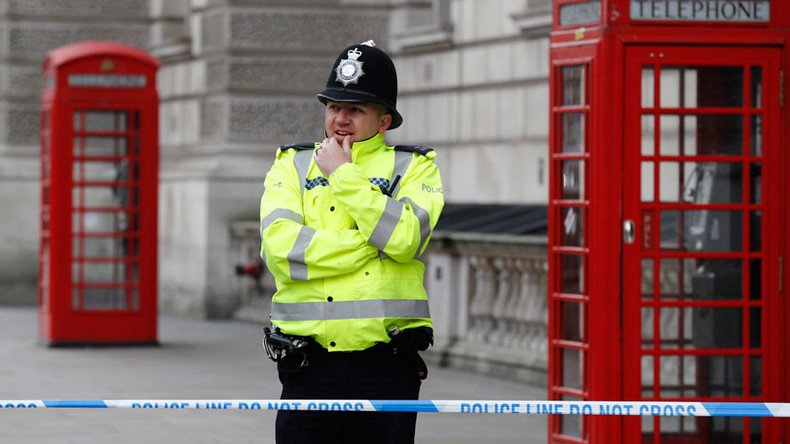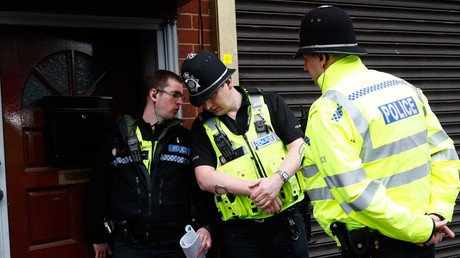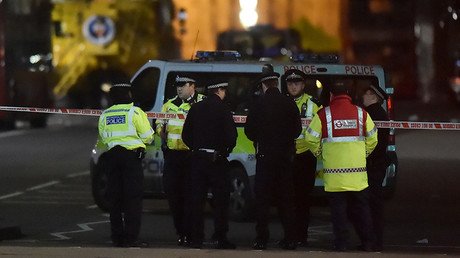MI5 launches inquiry into whether it could have prevented Westminster terrorist attack

Britain’s domestic intelligence agency MI5 has launched an internal inquiry into whether it could have stopped Westminster terrorist Khalid Masood – an ex-convict who it investigated in the past, but had dropped off its radar.
MI5 will face questions, as it did after the London bombings in 2005 and the murder of soldier Lee Rigby in 2013, about why the attacker slipped through the net.
Prime Minister Theresa May told MPs that Masood, 52, was investigated by MI5 “some years ago” but was “not part of the current intelligence picture.” She added there was “no prior intelligence of his intent or the plot [for the Wednesday attack].”
Police and security services monitor 3,000 Britons, mainly Islamists, regarded as capable of domestic terrorism. Of these, about 500 are the subject of active investigations, while only a limited number are targets of physical surveillance.
Masood was regarded as so “peripheral” he was not even on the list of 3,000.
Security agencies have repeatedly warned it is difficult to guard against unsophisticated ‘lone wolf’ attacks like the one mounted by Masood. When more than one person is involved, there is a chance of picking up the plan through informers or electronic surveillance.
Ex-GCHQ chief Sir Francis Richards says it’s not a question of “whether attacks like this take place but when.”
Speaking to BBC Radio 4, he said: “I think the security service has been absolutely consistent for more than the last 10 years in warning that it’s not a question of whether attacks like this take place but when.
“This is a low-tech attack, anybody with a driving license could physically have carried it out.”
Islamic State (IS, formerly ISIS/ISIL) has claimed its “soldier” carried out the attack, “responding to a call for attacking citizens of coalition states.”
Richards believes the likelihood of an “organic” connection between IS and Masood is small.
“It’s very likely he has been radicalized – I’ve seen speculation that he was radicalized in prison by contact with violent extremists there. And I expect there will be a discussion of how wise it is to allow violent extremists to associate with vulnerable criminals in prisons.”
Richards said Masood became Muslim “without, one suspects, knowing a great deal about Islam.”
“I suspect that he would have been a person with serious identity problems and vulnerable to the kind of extremist recruitment that happens both in prisons and indeed on the internet.”
Top anti-terrorism cop hits out at ‘nonsense from armchair critics’
Meanwhile, Scotland Yard’s top anti-terrorism officer, Mark Rowley, has hit out at “armchair critics” who are criticizing security services following the Westminster attack.
Rowley made the comments to reporters after it emerged Deputy Commissioner Craig McKay had been rushed away from the scene of the crime on Wednesday. McKay, who is temporarily in charge of the Metropolitan Police, was in Parliament for a routine meeting when the incident occurred.
“It’s frustrating when we are wrestling with an incident like this and the acting commissioner is doing an amazing job, that we get nonsense from armchair critics,” Rowley said.
“Can we focus please on the investigation and the public appeal.”
Who is Khalid Masood?
MI5 is building a detailed file on Masood’s background and recreating his movements over the last few weeks. So far 2,700 items have been seized and 3,500 witness statements taken, with five searches ongoing and 16 searches already concluded.
Police have revealed that Masood, born in Kent and reportedly a convert to Islam later in life, had a string of aliases. His birth name was Adrian Russell Ajao, although this was earlier reported as Adrian Elms.
Masood was described by police as a criminal with a 20-year record of offending, who had once been investigated for extremism but was assessed as low risk. His first conviction was in 1983 for criminal damage and his last conviction was in December 2003 for possession of a knife.
He was married with three children, and had been living with his family in an inner city suburb of Birmingham, police say.
According to reports, Masood claimed on his CV to have taught English in Saudi Arabia in 2005 and returned to the UK in 2009, where he became a “senior English teacher” at a TEFL college in Luton. In 2012, he reportedly set up an English language tutoring business, named IQRA, based in Birmingham.
As police search for any evidence of a wider conspiracy, eight people remain in custody after properties across the UK were raided.
Leslie Rhodes, 75, was named by police as the fourth victim to die in the attack. From Streatham in South London, Rhodes died in hospital on Thursday night after life support was withdrawn as a result of injuries he sustained during the attack.
The three other victims killed in the attack were police officer Keith Palmer, 48, teacher Aysha Frade, 43, and US citizen Kurt Cochran, 54.
Rowley said at least 50 people were injured with 31 requiring hospital treatment. Two people remain in a critical condition.














